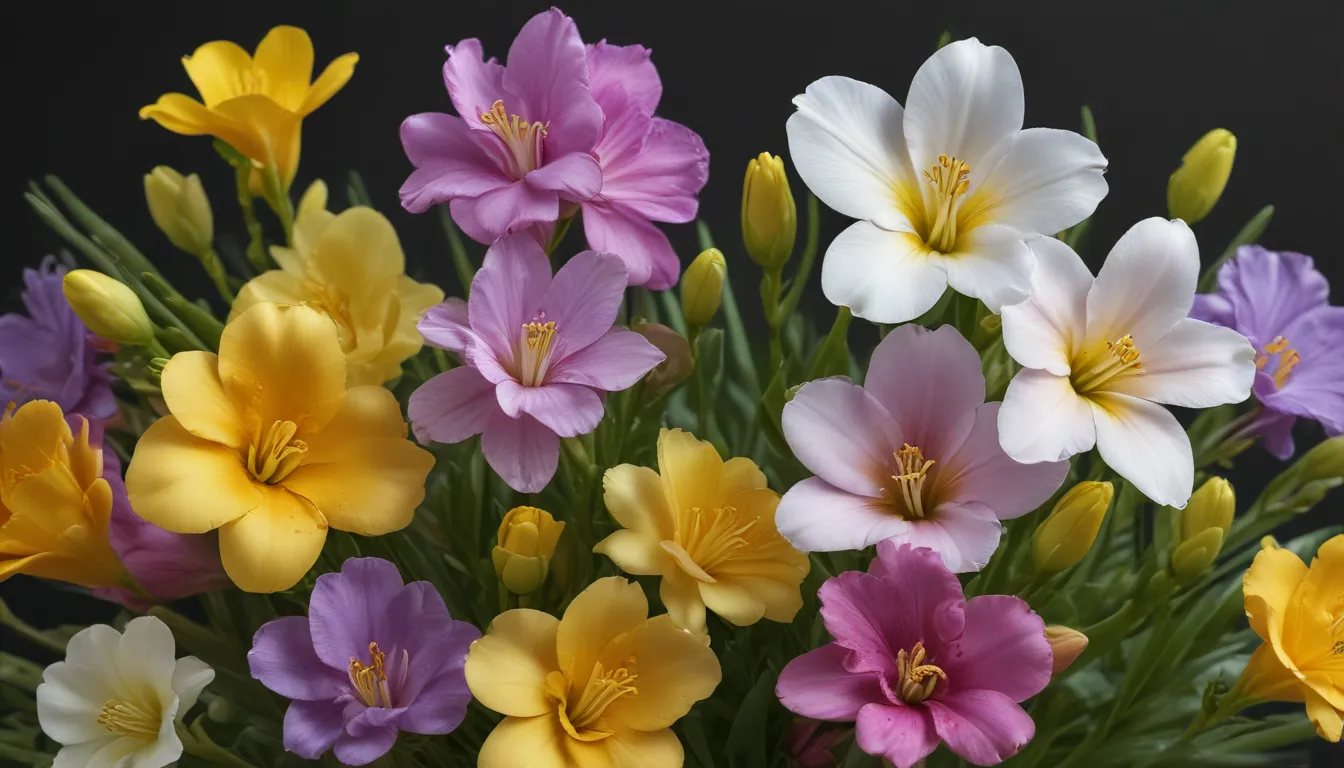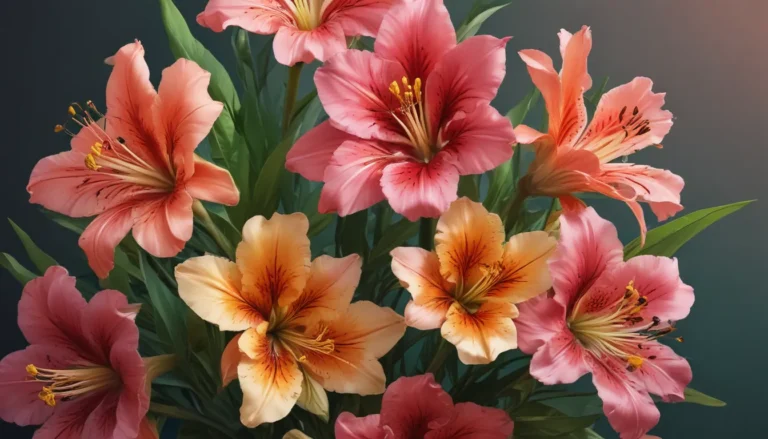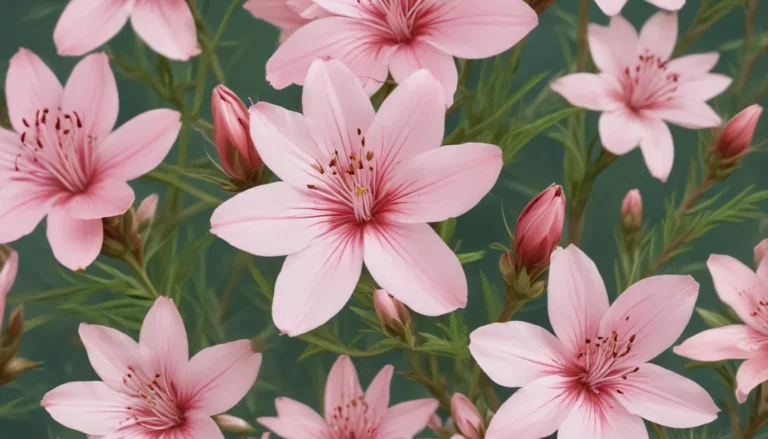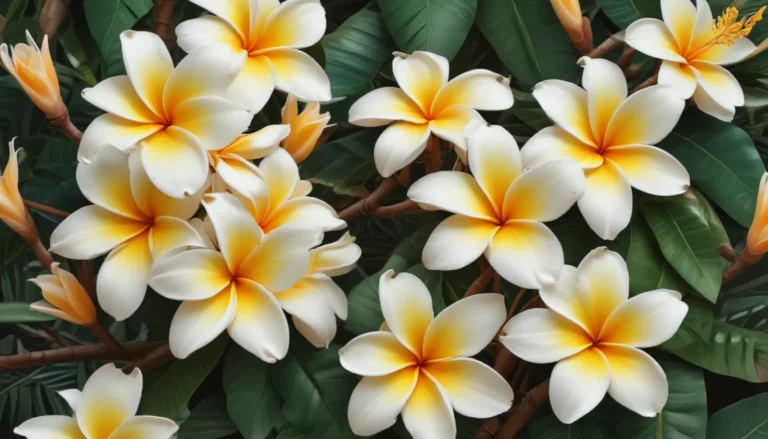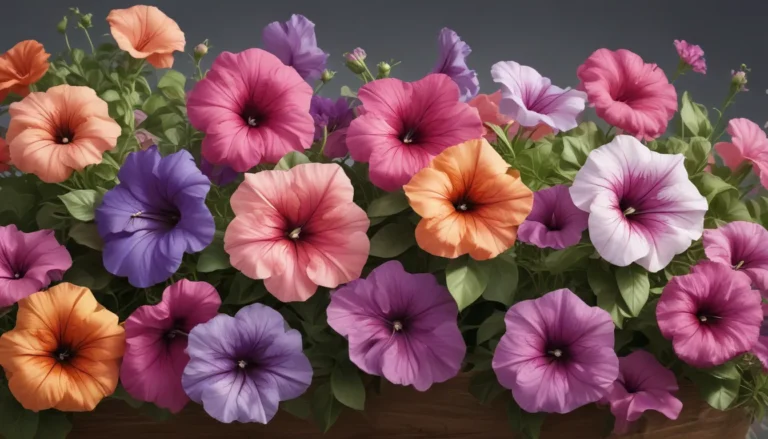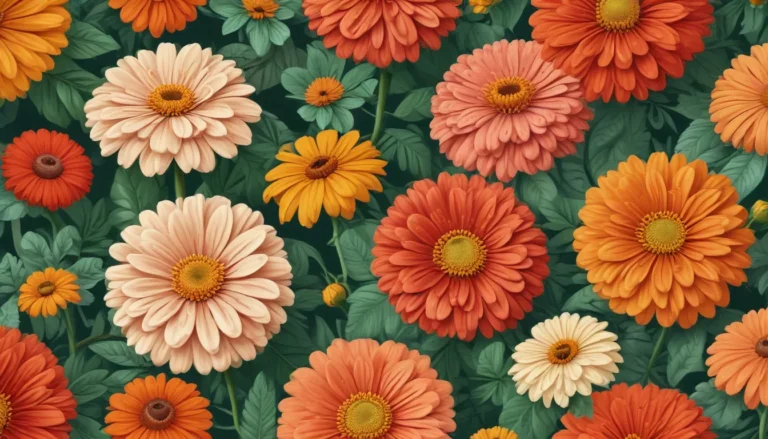The pictures we use in our articles might not show exactly what the words say. We choose these pictures to make you interested in reading more. The pictures work together with the words but don’t take their place. The words still tell you the important facts.
Freesias, with their delicate petals and captivating fragrance, have charmed gardeners and flower enthusiasts for centuries. Originating from South Africa, these blooms symbolize friendship and love, making them a popular choice for weddings and springtime floral arrangements. Dive into the world of freesias as we uncover 15 fascinating facts that will deepen your appreciation for these stunning plants.
The Origin of Freesia
Discovered in the 19th century by German botanist Christian P. Ecklon, freesia is native to South Africa. The plant was named after Friedrich Heinrich Theodor Freese, a German physician, and botanist, in honor of his contributions to its discovery.
The Fragrance of Freesia
Freesia is renowned for its sweet and citrusy scent that can fill an entire room. This captivating fragrance has made freesia a popular choice for perfumes and scented candles, adding a touch of elegance to any space.
Variety of Colors
Freesia flowers bloom in an array of colors, each carrying its own symbolism. White symbolizes purity, yellow represents friendship, pink signifies romance, purple embodies royalty, and red symbolizes love and passion.
The Symbolism of Freesia
Associated with innocence, thoughtfulness, and trust, freesias are commonly used in floral arrangements to convey heartfelt emotions. Gifting freesia is a meaningful way to express love, appreciation, or offer condolences.
Perfect for Springtime
Blooming in the spring, freesias bring a sense of freshness and renewal after the winter months. Many people associate freesia with the arrival of spring and the awakening of nature, making it a quintessential flower for this season.
The Meaning of the Name
The name "freesia" is derived from Friedrich Heinrich Theodor Freese, the German botanist in whose honor the plant was named. The slight change in spelling to "freesia" was made to recognize Ecklon's contribution to its discovery.
Freesia as a Cut Flower
Freesias are a popular choice for cut flowers due to their long vase life and enchanting fragrance. When properly cared for, these blooms can last up to two weeks, adding elegance to any room or floral arrangement.
The Cultural Significance
Freesia holds cultural significance in various traditions worldwide. In Victorian England, it symbolized trust and friendship, while in some African cultures, it is believed to bring good luck and is used in ceremonies and rituals.
Freesia in Art and Literature
Freesia's delicate and elegant appearance has inspired artists and writers, leading to its depiction in paintings, poems, and other creative works. The flower is often associated with beauty, grace, and elegance in artistic expressions.
Symbol of Winter Solstice
In certain cultures, freesia symbolizes the winter solstice, signifying the rebirth of the sun and the longer days following the shortest day of the year. Freesia flowers are commonly used in festive decorations during this time.
Freesia’s Medicinal Properties
Beyond its beauty and fragrance, freesia is believed to possess medicinal properties. Studies suggest that freesia extracts may have anti-inflammatory and antioxidant effects, traditionally used to treat ailments like coughs and digestive disorders.
Popular Wedding Flower
Freesia is a beloved choice for weddings, adorning bridal bouquets, centerpieces, and floral decorations with its delicate beauty and romantic symbolism. Its elegant appearance and pleasant fragrance add sophistication to any celebration.
Freesia’s Botanical Classification
Belonging to the family Iridaceae and the genus Freesia, these bulbous perennials require well-draining soil and plenty of sunlight to thrive. They are closely related to other popular flowers like iris and gladiolus.
Symbol of Friendship
In the language of flowers, freesia symbolizes friendship and loyalty. Gifting freesia to someone is a beautiful way to express gratitude for their companionship and celebrate a lasting friendship.
Freesia’s Global Cultivation
Cultivated in various regions such as South Africa, California, and the Netherlands, freesia thrives in climates that support its growth. The global demand for freesia as both a cut flower and potted plant continues to rise.
These 15 fascinating facts about freesias offer a glimpse into the beauty, symbolism, and cultural significance of these remarkable flowers. From their origins to their popularity in different cultures and art forms, freesias continue to captivate with their charm and enchanting qualities. Whether adorning a garden or adorning a special occasion, freesias bring joy and elegance wherever they bloom.
Conclusion
In conclusion, freesias are captivating flowers that mesmerize with their beauty and fragrance. Whether in gardens, bouquets, or artistic expressions, freesias enchant with their vibrant colors and delicate petals. Adding freesias to your collection can enhance the visual appeal and aromatic ambiance of your surroundings, bringing joy and beauty to your life. Embrace the wonder of freesias and appreciate the stories they hold, brightening your world with their charm.
FAQs
- How long do freesias bloom?
-
Freesias typically bloom for about 4 to 6 weeks during the spring and summer months.
-
Are freesias easy to grow?
-
Yes, freesias are relatively easy to grow, especially in well-drained soil and full sunlight. They are also popular choices for container gardening.
-
Do freesias have a fragrance?
-
Yes, freesias have a sweet and pleasant fragrance that can fill the air with their delightful scent.
-
Can freesias be grown indoors?
-
Yes, freesias can be grown indoors in containers, as long as they receive adequate sunlight and proper care.
-
How do I store freesia bulbs?
-
Freesia bulbs should be stored in a cool and dry place during the dormant season, ready to be replanted when the time is right for their growth cycle.
-
Are freesias susceptible to any diseases or pests?
-
Freesias can be vulnerable to certain diseases and pests such as fusarium wilt and aphids. Proper care and pest control measures can help prevent these issues.
-
Can freesias be used in floral arrangements?
-
Yes, freesias are popular choices for floral arrangements and bouquets due to their vibrant colors and delightful fragrance.
-
Are freesias toxic to pets?
- Yes, freesias can be toxic to cats and dogs if ingested. It is essential to keep them out of reach of pets to prevent any harm.
Immerse yourself in the enchanting world of freesias, exploring their captivating qualities and cultural significance. Discover the beauty and elegance of freesias, embracing their charm and symbolism in every bloom. Bring the joy of freesias into your life and appreciate the fascinating stories these blooms hold.
